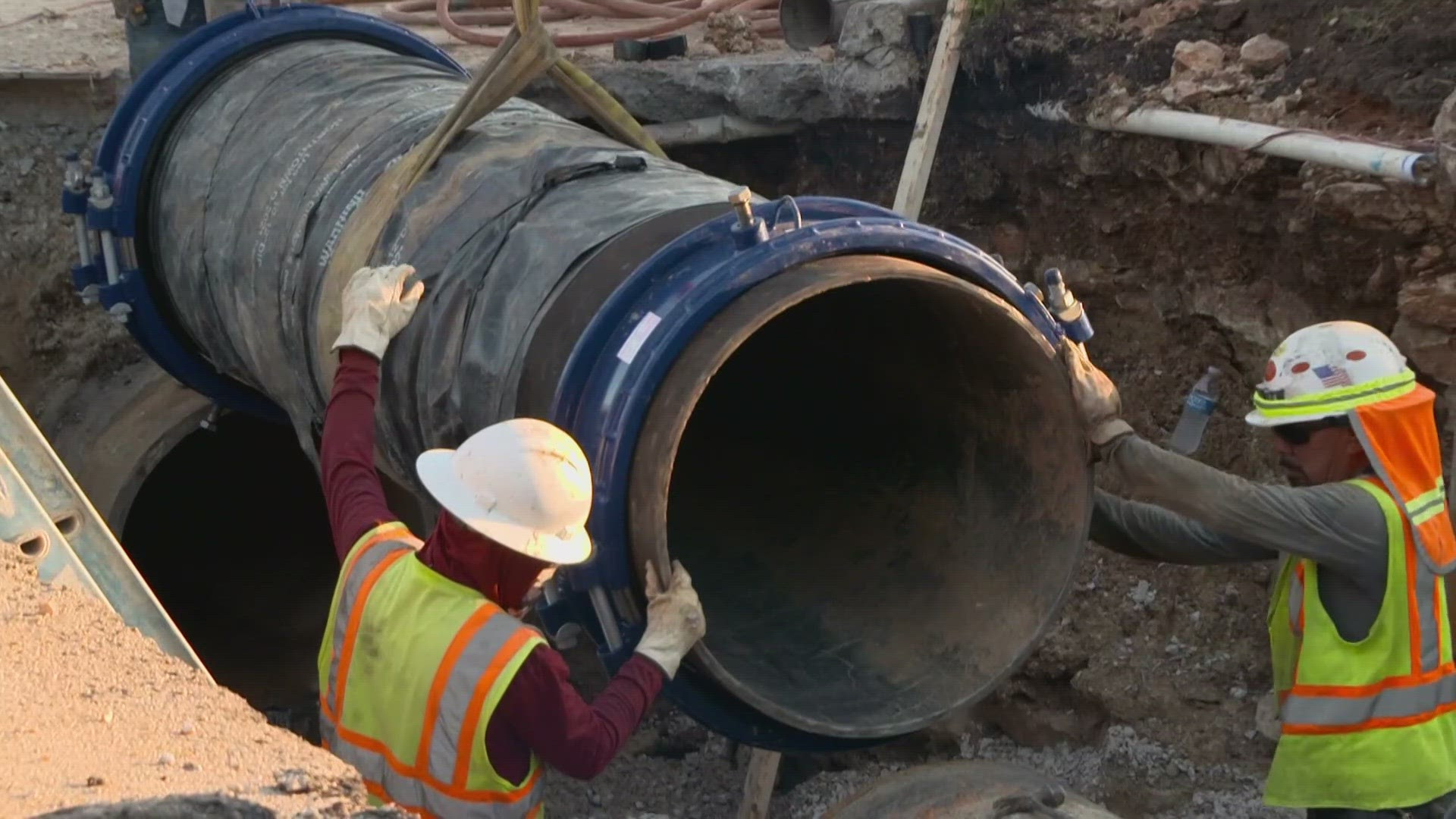FORT WORTH, Texas — Bubbling under the surface in Fort Worth is an issue not getting better by itself. The city has 800 miles of outdated cast iron pipes that are prone to breaking. That’s a big reason why the department is hoping to raise rates by about 3% in the city’s new budget.
“It could interrupt their service,” Fort Worth Water spokesperson Mary Gugliuzza said. “No one wants to have their service interrupted.”
The raise would add $2.18 to an average bill, which is $71.08.
“Rehab and replacement is just as important as growth,” Gugliuzza said. “We need to be able to spend money to accommodate both.”
Right now, the city averages about 20 miles of pipe replacement per year, which means the time horizon for full replacement of the cast iron is about 40 years.
Just last week, a 30-inch line on Lancaster Avenue broke and impacted water lines for more than one miles around the city. City council members have discussed the idea of speeding up the replacement, but that would mean more funding.
Possibly the biggest factor in the rate increase is interest rates, which are pushing debt payments higher.
“Interest rates are going up for everybody and even though we have very good bond ratings, we still get impacted by that,” said Gugliuzza.
Fort Worth also doesn’t control its pricing. It buys some water from the Trinity River Authority, which is raising rates on its far north Fort Worth plant by 58%. That has a double impact on the city since that’s where much of the growth is happening, and Gugliuzza said they have to buy increasing amounts each year.
TRA attributed its increase in rates, about $4.00 per 1,000 gallons, to interest rates and expanding the north Fort Worth plant to handle more water.
The new rates would put the city’s average bill higher than Dallas, just above Arlington but below Plano and Mansfield.
“We’ve all seen inflation in the things that we buy,” Gugliuzza said. “We’re seeing it in the cost to do construction as well.”
City council still has to discuss and vote on the budget, but that’s expected to occur in the next two weeks.

